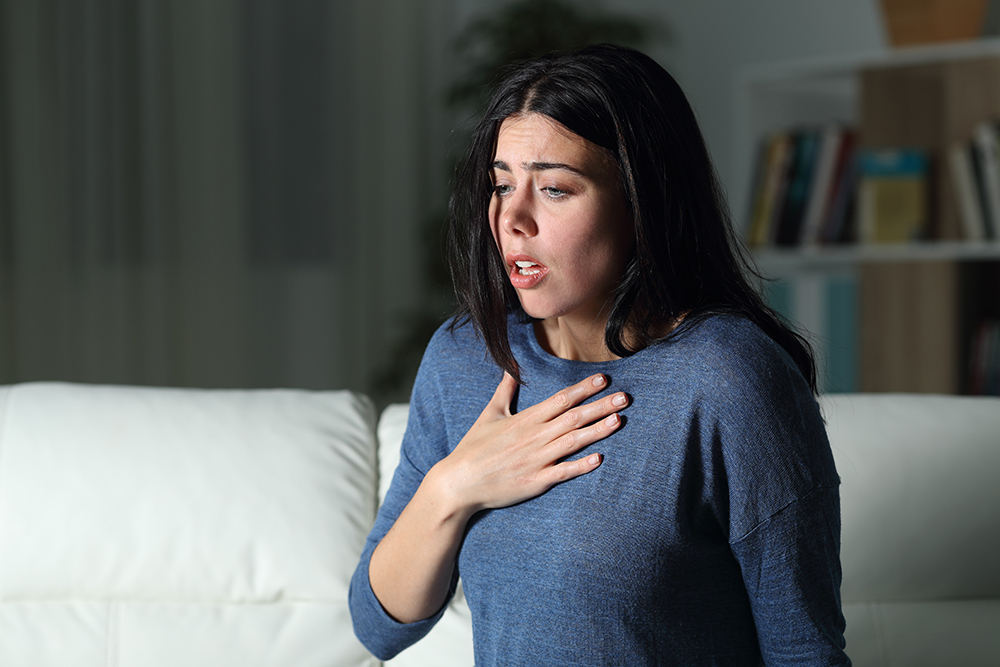As vaccines roll out and we slowly emerge from the COVID-19 pandemic, people are experiencing a slew of emotions, including anxiety. The pandemic brought unprecedented change that pushed us further into the digital realm and stripped us of many everyday human interactions.
Families suffered significant losses, businesses shuttered, and uncertainty shrouded the future. Life as we knew it was essentially thrown out the window, launching many into a state of panic. Now, as we slowly return to normal, nearly half of Americans feel anxious about what the future holds.
What is Post-COVID Anxiety?
The term post-COVID anxiety has made its way into our everyday vocabulary and is likely to remain for some time. Post-COVID anxiety is hard to define, as it can have many different triggers, but its underlying theme is a feeling of unease about returning to normal.
Many of us have adjusted to a new way of life during a pandemic that has been here longer than anticipated. Suddenly departing from it is causing anxiety over how to behave in a post-COVID world.
Moreover, there is uncertainty around exactly how and when we will return to normal. Conflicting information arises almost daily, and societies worldwide are opening up only to backslide into a heavy lockdown shortly after. Living in a constant state of flux leads many to feel a lack of control over their own lives, leading to unprecedented anxiety and stress.
Why Going Back to Normal May be Difficult for Some
We hear time and time again that humans are creatures of habit. The initial period of adjustment to the pandemic was challenging for most. Now that we’re facing another upending of our daily routines, many people feel unprepared to return to normal.
The Social Aspect
Lockdowns sequestered many of us to our homes, and for those who live alone, the change was especially tough. Isolation has meant more time alone with our thoughts and fewer outlets for relieving ourselves from them.
While many are looking forward to getting back to normal, the sheer idea of returning to work or public settings is intimidating for some. Many of us experienced breakdowns in our relationships due to isolation and may feel nervous about seeing friends and family again.
What’s more, some of us have put our social skills on the shelf during lockdown, meaning we’re likely to fumble through more than a few social interactions as we return to normal life. People with social anxiety are even more likely to struggle with post-COVID conventions and social cues.
The Health Aspect
Although vaccines are rapidly rolling out, the lingering threat of contracting COVID is a source of anxiety for many, and people are understandably worried about returning to work or school too soon.
Not only is the prospect of contracting COVID cause for anxiety, but anxiety is also a symptom widely seen in patients diagnosed with COVID-19. One study found that nearly 20 percent of COVID-19 patients develop a mental health issue like anxiety, depression, or dementia within three months of diagnosis. Scientists are still working to uncover the link between the two.
The Lingering Effects of the Pandemic
The pandemic has had devastating and life-changing effects. Those who suffered significant hardship during the pandemic, such as bereavement or loss of income, are at increased risk for anxiety, depression, and suicidal thoughts.
Isolation has profound effects on mental health, with many feeling heightened anxiety, depression, loneliness, and suicidal thoughts that are likely to accompany us through the foreseeable future. Isolation has even been linked to decreased cardiovascular health and cognitive function in some.
What Can I do About Post-COVID Anxiety?
It’s natural to feel heightened stress and anxiety during a pandemic, but we can still take steps to mitigate it. Connecting with family and friends can help, as a lack of social interaction can affect our moods, even if we don’t know it.
You may want to limit your time on social media as well. The news can be overwhelming, and constantly changing information can add to feelings of unease.
Developing a healthy diet and exercise habits may also help some people deal with post-COVID anxiety. Yoga or meditation may help calm an anxious mind.
We are Here to Help You with Your Post-COVID Anxiety
Some level of fear and worry is expected in a post-pandemic landscape, but if you’re feeling overwhelmed about the future, talking to a mental health professional might help.
At Arcara Personalized Psychiatry, we can help you develop coping skills to manage post-pandemic life. Whether you are concerned about returning to work or heading into public settings again, you may be able to benefit from a specialized treatment plan. The simple act of speaking about your feelings may even help see you through this difficult time.



